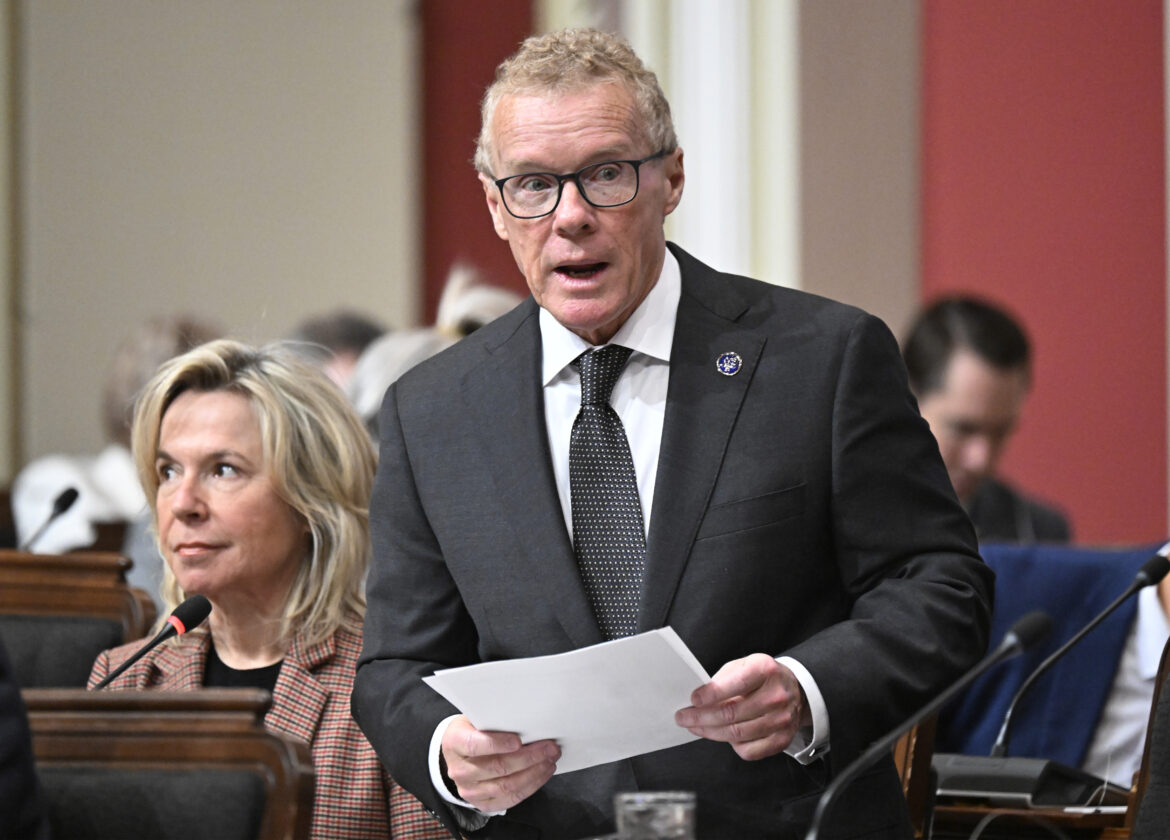199

Quebec Labour Minister Jean Boulet tables a legislation on labour at the legislature in Quebec City, Thursday, October 30, 2025. THE CANADIAN PRESS/Jacques Boissinot




